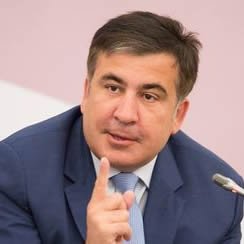Of all the Central Asian states, Kazakhstan has been most successful in balancing its foreign relations with a variety of global powers. The country has even branded its foreign policy as “multi-vector” to accentuate its success in maintaining a diverse set of international partners. Whether Kazakhstan’s multi-vector foreign policy is the result of conscious policy planning or an outcome of necessity is unclear, but one cannot dispute that this policy’s implementation has benefitted the country as it has maintained a broad array of partners both economically and politically without creating any pronounced adversaries in the international arena.
The Ukraine conflict presents the first real challenge to Astana’s long-standing and successful “multi-vector” foreign policy. As the sanctions against Russia further isolate the country, its relationship with Kazakhstan is becoming more important and could become more demanding. U.S. and EU efforts to hold Russia accountable for its actions in Ukraine have placed Kazakhstan in an awkward position between two sides in what has emerged as a tense and prolonged diplomatic confrontation. Furthermore, Kazakhstan seeks to retain a close working relationship with Ukraine and does not want to be viewed as merely supporting Moscow’s position toward the country. Finally, Russia’s intervention in Ukraine is a cautionary tale for Astana about what could happen if serious disagreements were to emerge between Kazakhstan, which has a sizeable Russian minority population, and the Russian Federation.
Thus far, Kazakhstan has managed these challenges relatively well. It has maintained good relations with Europe, Russia, the United States, and Ukraine since the conflict between Russia and Ukraine began, and it has even attempted to play a mediating role in the conflict. However, the longer the conflict continues, the more likely that Kazakhstan will find itself in a position where it becomes impossible to retain its “multi-vector” position.
In particular, the Ukraine conflict could force Kazakhstan to stray from its preferred “multi-vector” stance in three aspects of its foreign affairs—its international economic policies, its positions on regional cooperation in the former Soviet space, and its voting within the United Nations. In each of these areas, Kazakhstan is likely to find it increasingly difficult to balance close ties with Russia, Europe, the United States, and Ukraine without creating tensions with one or more of these partners.









